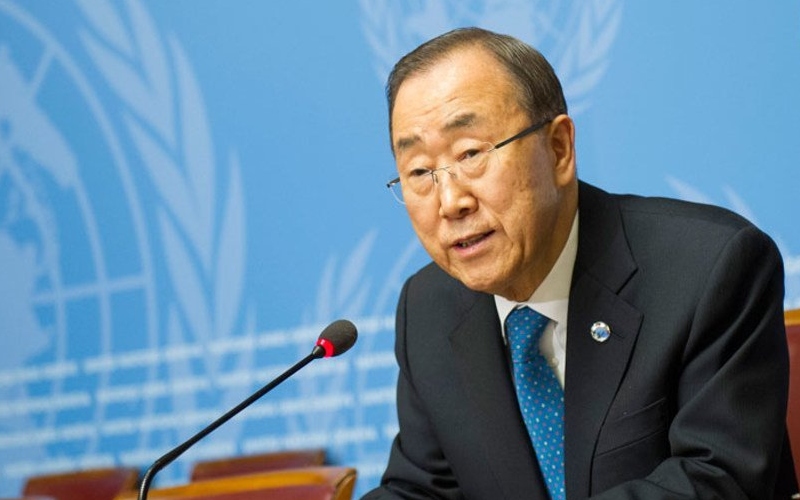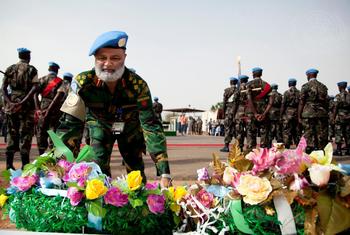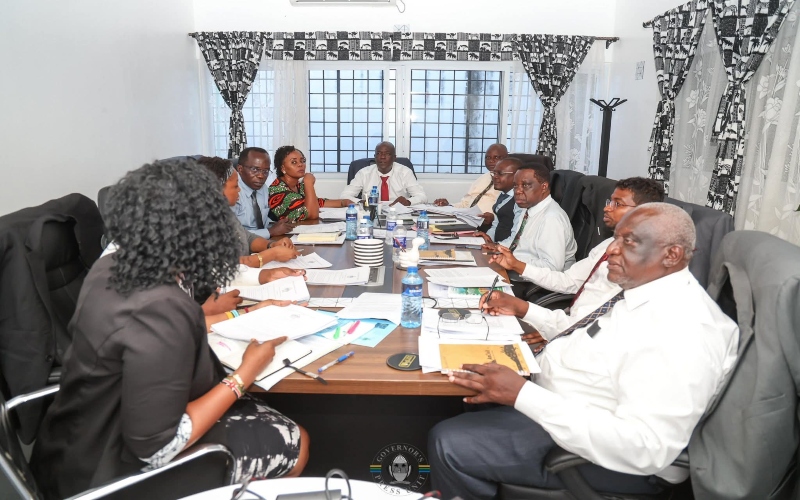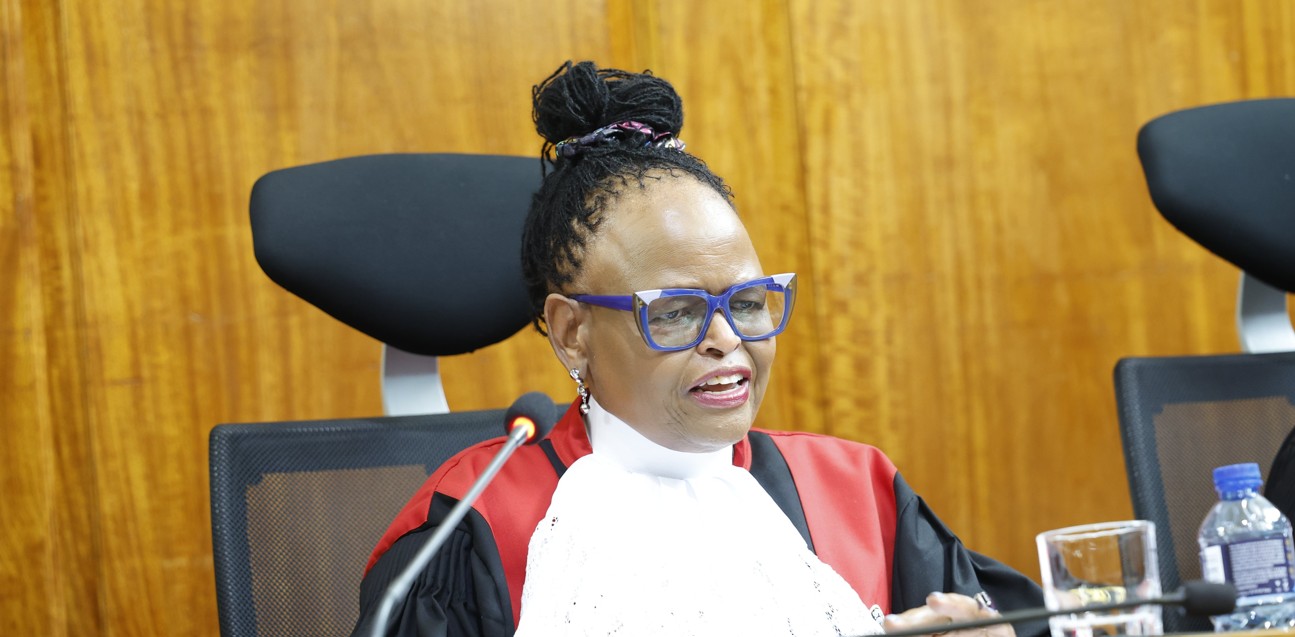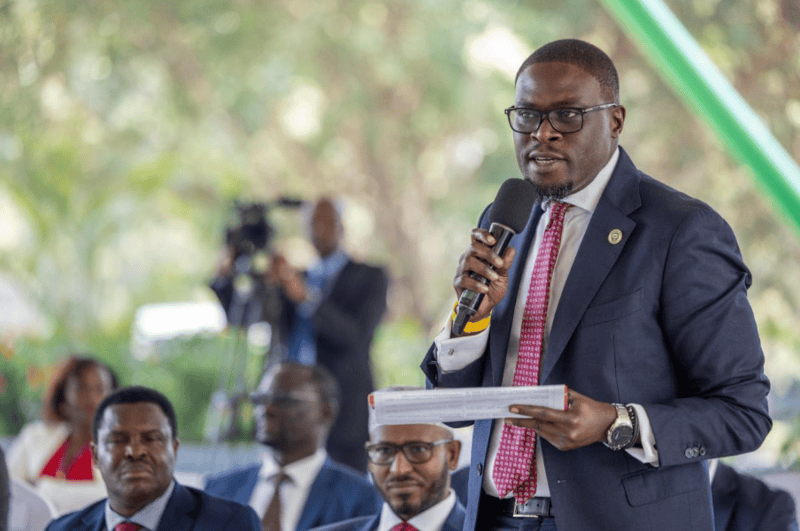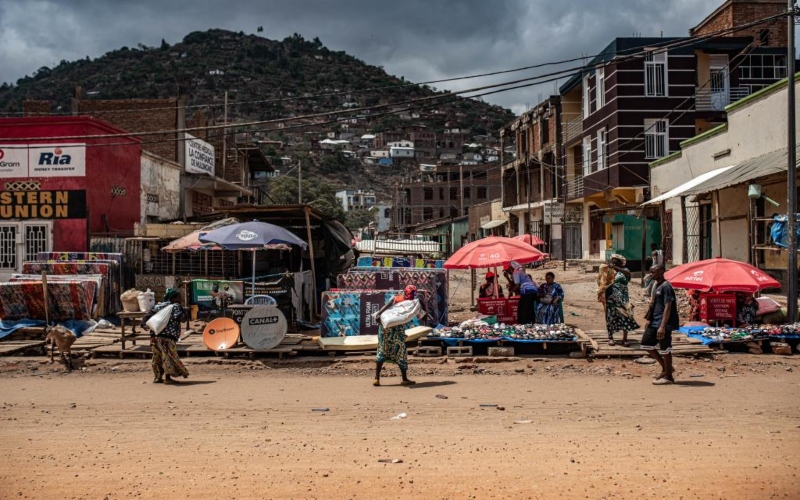Menstrual Hygiene Day: Kamukunji residents call for free sanitary towels
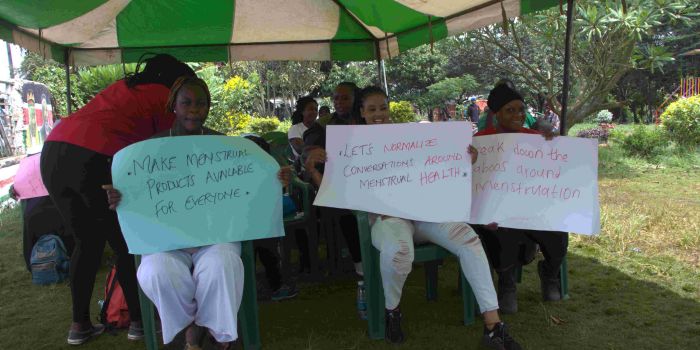
PS Mary Muthoni emphasised the significance of the day in promoting proper menstrual practices, aligning with this year's theme, "Making Kenya Period-Friendly".
Residents of Kamukunji Constituency, Nairobi, called for free sanitary pads on Tuesday as they joined the world in marking Menstrual Hygiene Day, focusing on raising awareness on the matter and combating period shaming.
They gathered at the Kamukunji grounds in an event that was a collaboration between Youth Alive Kenya and the Young Urban Movement of Majengo, Puwmani Ward.
More To Read
In her address, Mary Muthoni, the principal secretary for the State Department for Public Health and Professional Standards, emphasised the significance of the day in promoting proper menstrual practices, aligning with this year's theme, "Making Kenya Period-Friendly".
"Since 2014, Kenya has commemorated Menstrual Hygiene Day with efforts geared towards providing accurate information on menstruation, ensuring access to affordable menstrual products, promoting sanitation facilities, and implementing sustainable waste management practices in a bid to attain a period-friendly nation," said Muthoni.
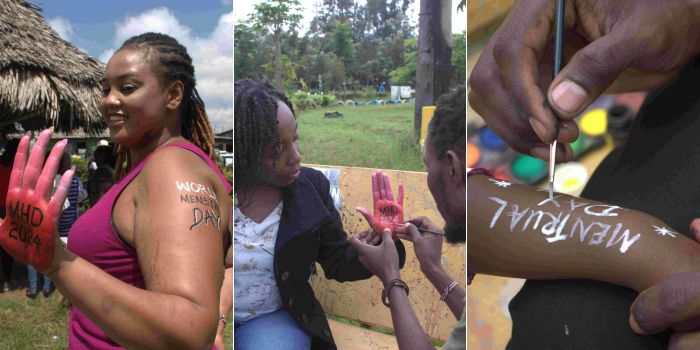 Residents of Kamukunji Constituency, Nairobi, have messages written on their bodies on Menstrual Hygiene Day during an event at the Kamukunji grounds on May 28, 2024. (Photo: Justine Ondieki/EV)
Residents of Kamukunji Constituency, Nairobi, have messages written on their bodies on Menstrual Hygiene Day during an event at the Kamukunji grounds on May 28, 2024. (Photo: Justine Ondieki/EV)
Kenya became the first country to scrap the value-added tax (VAT) on sanitary pads and tampons in 2004 and was followed by at least 17 countries. In 2016, the country made another significant move, scrapping the tax on raw materials used to manufacture sanitary pads.
Despite these measures, however, many girls still find sanitary pads unaffordable and complain about the high costs.
Residents asked for free sanitary pads for women and girls who cannot afford them, with one Zalfa Ingasia noting that financially impoverished households often prioritise other needs.
"Buying pads for these women does not become a viable option or priority for people struggling even to put food on the table. Such situations have also led these young girls to become vulnerable to transactional sex, which contributes to the high rate of teen pregnancies," said Zalfa.
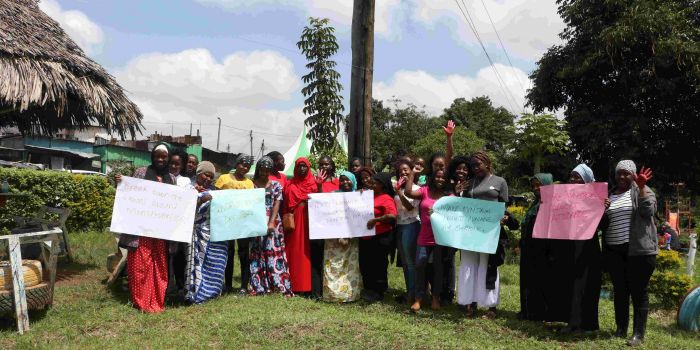 Residents of Kamukunji Constituency, Nairobi, attend an event at the Kamukunji grounds to mark Menstrual Hygiene Day on May 28, 2024. (Photo: Justine Ondieki/EV)
Residents of Kamukunji Constituency, Nairobi, attend an event at the Kamukunji grounds to mark Menstrual Hygiene Day on May 28, 2024. (Photo: Justine Ondieki/EV)
She further spoke of the hygiene struggles faced by women and girls who often use a single pad for over 11 hours instead of the recommended three to four, exposing them to infections. Also, many share toilets in overcrowded homes, heightening health risks.
"You can find 200 families sharing one toilet," Zalfa noted.
She also spoke about the traumatic experiences young girls face when they start their periods, associating menstruation with shame and stigma. The lack of information and sensitisation has led to widespread misinformation among women and girls, she noted.
"I got my first period when I was 13 years old, and the cramps were immensely painful. I grew up thinking it was normal, but as time went by and I got more information, I realised it was not common or normal to feel that much pain. The pain might be an indicator of something more extreme, but many girls and women are not aware," she said.
 Residents of Kamukunji Constituency, Nairobi, attend an event at the Kamukunji grounds to mark Menstrual Hygiene Day on May 28, 2024. (Photo: Justine Ondieki/EV)
Residents of Kamukunji Constituency, Nairobi, attend an event at the Kamukunji grounds to mark Menstrual Hygiene Day on May 28, 2024. (Photo: Justine Ondieki/EV)
Amina Ahmed of the Young Urban Movement acknowledged progress over the years in curbing period shaming and increasing awareness.
"Many people openly talk about menstruation and do not shy away from the topic. How our children see and experience periods is not how we experienced them. They are well-informed and aware of everything," Amina stated.
Victoria Nyokabi, a member of Youth Alive Kenya, also called on the government to make sanitary pads free and accessible to all women and girls across the country.
"We are championing improved services at the local level and are urging the government to make these services available for the women and girls who cannot afford them," said Vitoria.
Top Stories Today


